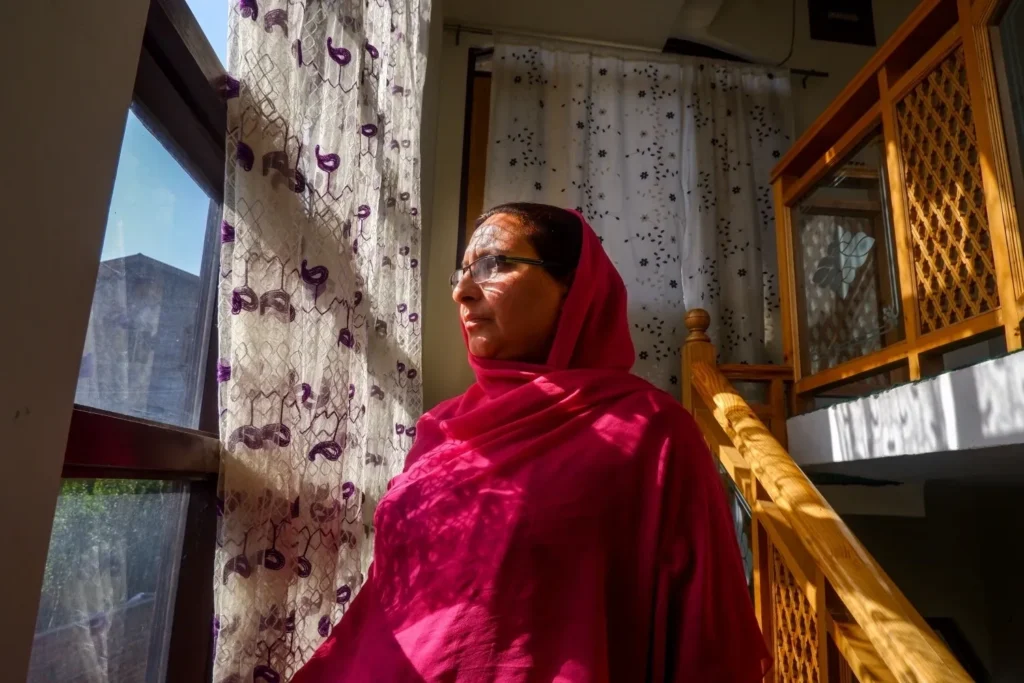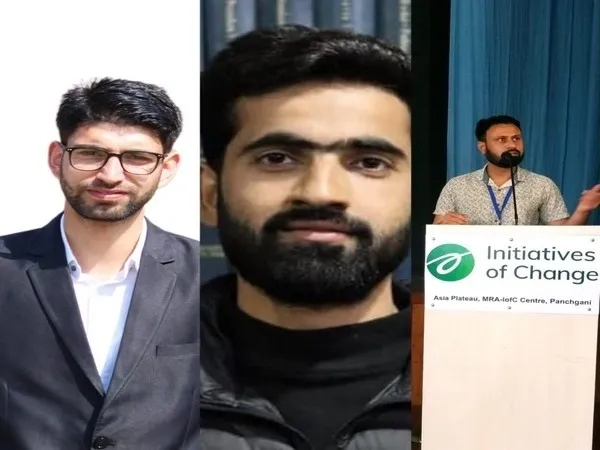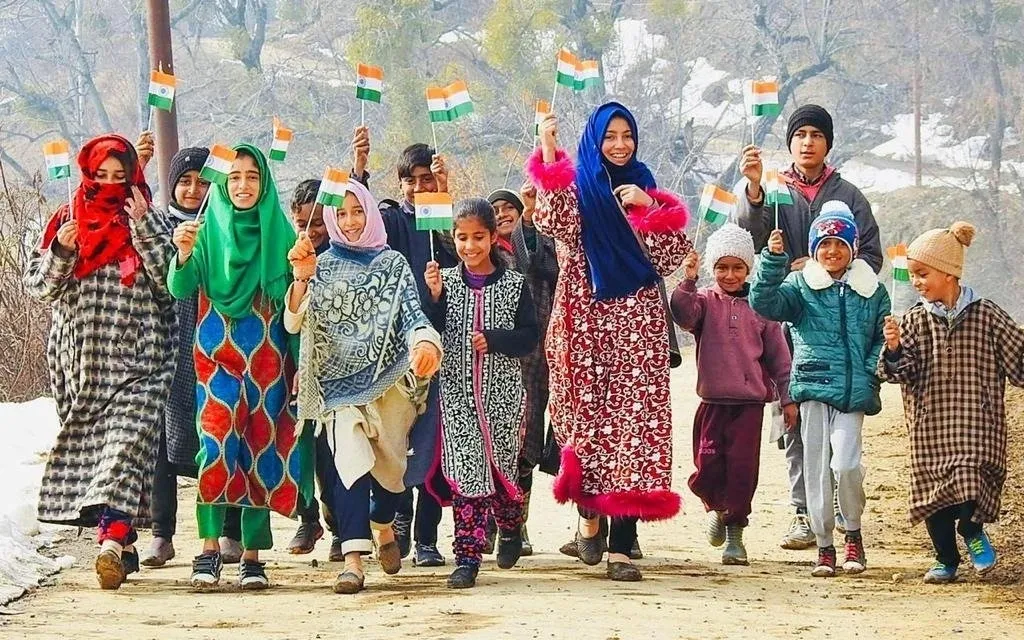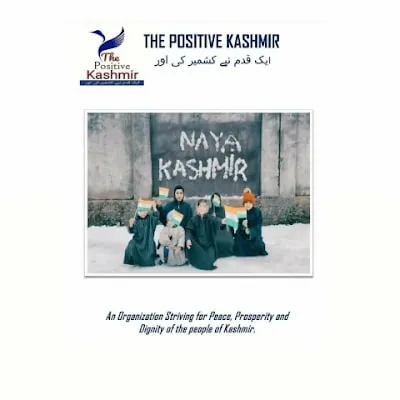Kashmir, a region known for its natural beauty and historical significance, is home to a vibrant and resilient population. Among them, women in Kashmir have played a vital role in shaping the cultural fabric and social dynamics of the region. However, they have also faced unique challenges due to the complex socio-political environment. In Kashmir, women’s empowerment is a crucial initiative aimed at reducing gender inequality, promoting equal rights, and elevating women’s status in the region. A concerted effort has been made to improve women’s empowerment in a variety of areas, despite the difficulties posed by the political and social climate.
Education is one of the most important aspects of women’s empowerment in Kashmir. The establishment of schools, colleges, and vocational training centres has been prioritised to ensure that girls have access to high-quality education. Girls have equal opportunities to learn, grow, and acquire knowledge that enables them to pursue their dreams because of this commitment to education. Education forms the cornerstone of women’s empowerment in Kashmir. Recognising this, numerous organisations and government bodies have focused on improving educational opportunities for girls and women. Scholarships, vocational training programs, and skill development initiatives have been introduced to ensure that women have access to quality education and the necessary tools to pursue their dreams. These efforts have not only expanded their knowledge and horizons but also opened doors to better employment prospects, financial independence, and improved social standing.
In Kashmir, efforts to promote women’s economic empowerment have been launched in recognition of the significance of economic independence. Ability improvement programs, business venture preparing, and micro finance plans have furnished ladies with the devices and assets to turn out to be monetarily independent. These undertakings set out business open doors, cultivate independent work, and energise ladies’ dynamic cooperation in the labour force. Women’s empowerment requires active participation in politics and decision-making processes. Women’s representation in local governance bodies and political institutions has been increased in Kashmir. Women are able to express their concerns, contribute to the formulation of policy, and shape the future of their communities because seats in these bodies have been reserved specifically for them.
In Kashmir, one of the most important aspects of women’s empowerment is spreading awareness about gender equality and the rights of women. Awareness campaigns, workshops, and training programs have all been made possible by NGOs, civil society organisations, and government agencies. These initiatives aim to make society more inclusive and equitable by challenging gender stereotypes and advocating for women’s rights. Legitimate changes assume a critical part in shielding ladies’ privileges and guaranteeing their strengthening. In Kashmir, regulation has been authorised to resolve issues like abusive behaviour at home, settlement, and inappropriate behaviour. These legitimate systems give security to ladies, engage them to look for equity, and cultivate a climate of wellbeing and correspondence.
Another important aspect of women’s empowerment is taking care of their health needs. To address the specific health concerns of Kashmiri women, improved access to healthcare facilities, reproductive health services, and awareness programs have been implemented. Guaranteeing their physical and mental prosperity reinforces their capacity to partake in all parts of life effectively.
Given the authentic struggle in Kashmir, peace building drives and compromise endeavours are principal for ladies’ strengthening. For long-term development and peace, it is essential to include women in decision-making forums and peacemaking processes. Women’s unique perspectives and contributions can help shape a peaceful future for the region by raising their voices.
Women’s rights and gender equality have made significant progress, even though women’s empowerment in Kashmir is still a work in progress. Legal reforms, health initiatives, peace-building efforts, education, economic empowerment, political participation, social awareness, and legal reforms have all contributed to women’s empowerment in the region. It is through these aggregate undertakings that ladies in Kashmir are recovering their organisation, testing cultural standards, and making a more comprehensive and evenhanded society for a long time into the future.
There are several upliftment programs and initiatives that have been implemented to empower women in Kashmir. These programs focus on various aspects, including education, skill development, economic empowerment, and social support. Here are some notable programs:
Umeed: The Umeed program, launched by the Jammu and Kashmir government, aims to provide socio-economic upliftment to women in rural areas. The program offers skill development training, access to credit facilities, and assistance in setting up small businesses. Umeed focuses on enhancing women’s capabilities, promoting entrepreneurship, and creating employment opportunities.
Beti Bachao, Beti Padhao: This national initiative, implemented in Kashmir as well, seeks to promote the value of the girl child and ensure her education. It aims to address gender imbalances and discrimination against girls by raising awareness, improving access to education, and providing financial incentives for the education of girls.
Women’s Empowerment Centres: Various government and non-governmental organisations have established Women’s Empowerment Centres in different parts of Kashmir. These centres provide vocational training, skill development programs, and support services to women. They focus on enhancing women’s skills in areas such as
tailoring, handicrafts, computer literacy, and entrepreneurship, thereby promoting economic self-reliance.
Mahila Shakti Kendra: The Mahila Shakti Kendra program, initiated by the Ministry of Women and Child Development, supports the holistic development and empowerment of women. It provides a range of services including skill development, counselling, legal aid, health awareness, and capacity building for women in Kashmir. The program aims to create an enabling environment for women to realise their potential and lead empowered lives.
Self-Help Groups (SHGs): Self-Help Groups have emerged as powerful platforms for women’s empowerment in Kashmir. These groups provide women with opportunities to come together, share resources, and engage in income-generating activities. Through SHGs, women receive financial support, training in various trades, and access to markets, enabling them to become financially independent and contribute to their families’ well-being.
Legal Aid and Support Services: Various organisations and NGOs offer legal aid and support services to women in Kashmir. These services include legal counselling, assistance in cases of domestic violence, property rights, and other legal matters. By providing access to justice and raising awareness about women’s rights, these programs help women overcome legal hurdles and protect their interests.
Educational Scholarships: Several scholarships and financial aid programs are available to support girls’ education in Kashmir. These initiatives aim to increase enrolment and retention of girls in schools and colleges by providing financial assistance for tuition fees, books, and other educational expenses.
These upliftment programs collectively work towards creating an enabling environment for the empowerment of women in Kashmir. By focusing on education, skill development, entrepreneurship, and social support, these initiatives are instrumental in breaking barriers, promoting gender equality, and uplifting women in the region.
The conflict in Kashmir has affected the lives of women in numerous ways. They have experienced loss, displacement, and the tragic consequences of violence. Yet, amidst these challenges, Kashmiri women have displayed remarkable resilience. They have shouldered the responsibility of maintaining households, supporting families, and nurturing communities. Women in Kashmir have emerged as pillars of strength, holding their families together and actively contributing to the social and economic fabric of the region. The women of Kashmir exemplify resilience, strength, and determination in the face of adversity. Despite the challenges posed by the socio-political environment, they have strived to break barriers, pursue education, and actively participate in various spheres of life. Through their cultural heritage, educational aspirations, public engagement, and unwavering spirit, women in Kashmir are redefining societal norms and contributing to the development and progress of the region. As their voices grow stronger and their roles expand, the empowerment of women in Kashmir serves as a catalyst for positive change, paving the way for a more inclusive and equitable society.




